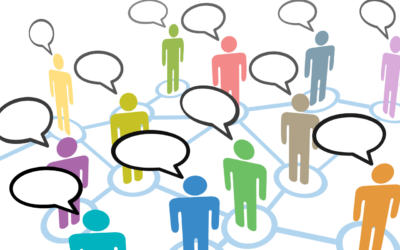By Marilynn Preston
I have been clearing off my desk. It was piled high with articles, notebooks and coffee-stained press releases leftover from 2017. It’s an activity, like skinny-dipping, that I highly recommend.
One thing I am keeping is an intriguing new book called “The Psychobiotic Revolution,” by Scott C. Anderson, John F. Cryan and Ted Dinan. It explains the cutting-edge science that proves your gut and your brain are interconnected, and why many foods we innocently eat mess up our physical and mental health, causing depression, anxiety – Alzheimer’s, too.
(Maintain your microbiome! The research is in. Does your doctor even know how to spell microbiome?)
I’m letting go of “Green Smoothies for Life.” It’s a highly recommended new release, but I’ve decided life is too short to gulp down your breakfast, even if it is a healthy and balanced mix of 10 fruits, 10 vegetables and enough protein powder to get you through dinner without actually chewing. (Did you know you can put banana peels in a smoothie?)
Time-saving smoothies also conflict with one of my primo resolutions for 2018: to slow down – a daunting campaign now in its 18th year.
This process of sorting through and tossing out has me thinking about two aha! insights of 2017.
INSIGHT NO. 1: TINY MOVES BRING BIG RESULTS
When most people think about doing more exercise, they mean big-motion activities: more walking, running, swimming, basketball, biking – whatever sparks joy.
All are stellar choices. Have fun; play sports! But here’s my wish for you: don’t ignore your inner body. Sensing how to communicate with it is a giant step forward when it comes to taking care of your personal well-being.
This isn’t woo-woo, it’s science: You can learn to make tiny, subtle moves within your own body. These small inner shifts of muscle, tissue and breath – done slowly, with awareness – help energize your spine, balance your sacrum, and lubricate your joints so when you do play sports or pick up heavy suitcases or groceries, you’re less likely to screw up your back, or wrench your shoulder. And if you do – accidents happen – you’ll have some self-care tools to speed your recovery.
Collectively it’s known as somatics training: teachers and practices that help you develop inner body awareness. Somatics-based yoga, Feldenkrais, the Alexander Technique, qigong, tai chi are all proven ways to direct your attention inward, to connect and balance your mind, body and breath. Do all that on a regular basis – with patience and kindness – and you can audition for Jedi knight.
INSIGHT NO. 2: TIME TO DO WHAT EVERY OTHER CIVILIZED NATION DOES
I live several months a year on a small island in the Aegean and have the good fortune of having friends who are citizens of Greece, France, Sweden, Holland, Italy, Germany, Belgium, England and other countries.
Why am I telling you this? Because none of them worry about health care costs. In the U.S., everyone worries. It’s a leading cause of anxiety, stress, even bankruptcy! My European friends don’t understand. When they get sick, they see a doctor. So do their kids and their aging parents. That drama is gone. Also the paperwork. The health care in their countries – in virtually every developed country in the world – is not the for-profit business it is in the U.S. It’s basically free for everyone to use, just as they use roads, schools and the police and fire departments.
Is their health care as good? It depends. It’s often better.
The year 2017 taught me that everyone, pretty much, strives to be healthier and happier. In the future, the first political party to offer (basically) free medical care for all – just like virtually every developed country in the world – will win the hearts and minds of the majority of voters.
– Marilynn Preston is the author of Energy Express, America’s longest-running healthy lifestyle column. For more on personal well-being, visit www.MarilynnPreston.com.









